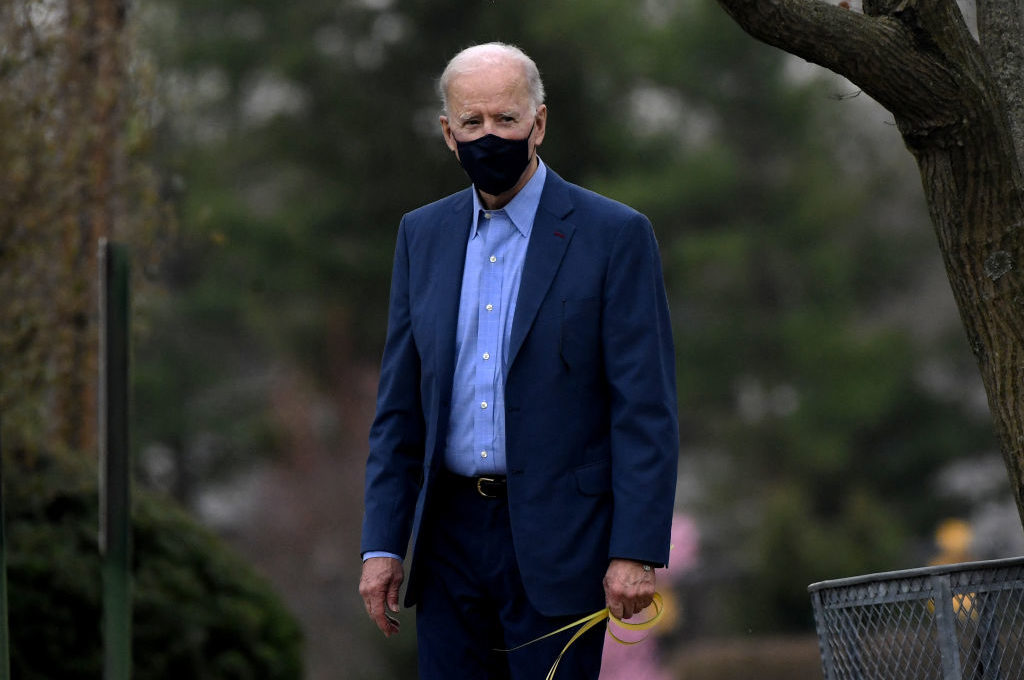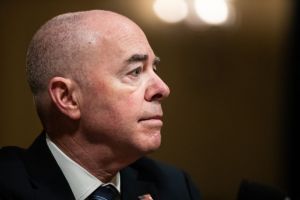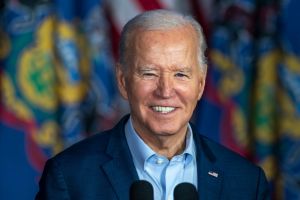A meeting in June of America’s Catholic Bishops could unravel threads that were sown decades ago in an untidy rapprochement among the Catholic Church, its member politicians and many of the laity who accept abortion as a matter of public law but reject it privately. On June 17, the United States Conference of Catholic Bishops approved the drafting of a document that would teach ‘Eucharistic coherence’. According to Bishop Thomas Olmstead of Phoenix, Arizona, this ‘means that our “Amen” at Holy Communion includes not only the recognition of the Real Presence but also a communion bound together by embracing and living Christ’s entire teaching handed down to us through the Church’. The term itself emerged from a 2007 Latin American Bishops’ document titled Aparecida that brought clarity on the reception of the Eucharist, with particular concern for public officials. Interestingly, those bishops were then led by an Argentinian Jesuit named Jorge Bergoglio, now known as Pope Francis. Pope Francis, the so-called progressive pontiff, understood the glaring contradiction of public officials proclaiming Catholicism while denying a core moral teaching with their public acts.
The USCCB has stated publicly that such a document is not motivated by the desire to punish pro-abortion politicians and would not be a political settling of scores. At one level, you can chuckle. The USCCB is a bureaucratic organization with little capacity to impose anything. Most of what it does is ignored and for good measure. National conferences operate within a universal church and are relegated to small matters of practice and order. But something is surely stirring with this recent move, even though enforcement of the document would remain with individual bishops; the document would have no self-enforcing teeth on any communicant. What it could bring is greater confidence and coordination among bishops on this conundrum.
The Church believes that communion is the reception of the body and blood of Christ; unworthy receipt of such a gift is sacrilege. President Biden’s unmitigated support for the advancement of abortion rights surely makes this move by the USCCB necessary. How could it not? The President of the United States supports abortion on demand, funded by tax dollars. He also shows up for Mass on Sunday. Such a glaring negation for any organization surely undermines its mission and integrity. The problem for the Church in America is that this problem has been ongoing since the 1970s.
There has been among Catholic bishops, laity, and public officials in America a public/private détente on abortion almost since Roe v. Wade was handed down by the Supreme Court in 1973. While this compromise is incoherent as a matter of Church teaching, it proved workable for decades. The Church maintained its public witness for the unborn. At the same time, abortion, both the procedure and payments, weren’t thrust down citizens’ throats, and many Catholic pro-choice Democrats, including then Sen. Biden, helped make this possible. The USCCB worked with pro-choice Catholic politicians where they could on welfare, education, healthcare, immigration, among other policies, while largely looking the other way on abortion. Laity received the message, loudly and clearly, on the Church’s moral position regarding the dignity of all life, yet that same message seemed to get muddled when it really counted. I speak not only of election time, but a general refusal by bishops to condemn formally the public actors in their midst who supported abortion policies. This has gone under various rubrics of the ‘seamless garment of life’, social justice Catholicism, and a peace and justice Gospel. Somehow support for a unified progressive approach to government could cover the disregard of the Church’s unambiguous teaching on abortion.
Many Catholics in public office have and continue to maintain that they cannot impose their religious beliefs on abortion policy. They privately abhor abortion and would never support or encourage it but contend they can do little about it as a policy matter. I used the term incoherent above to indicate that the private-agree/public-ignore response of pro-choice politicians ignores the fundamental claim of the Church regarding abortion, which isn’t rooted in revelation. Rather, it is rooted in biological and scientific facts of conception and the earliest stages of human existence that the Church then draws on to make a moral judgment condemning the practice of abortion. As such, abortion isn’t wrong because the Church says it is, rather, abortion is wrong as a matter of moral reason and the Church affirms this judgment. However, many faithful lay Catholics have often wondered if the Church itself, given its tolerance of pro-abortion politicians in the communion line, fully believes what it proclaims.
But this compromise position is now coming apart, split by factors that have emerged inside the Church and in the cultural landscape. One unmistakable factor is a newly aggressive abortion lobby operating in and through the Democratic party, one that makes no compromises. Increasingly in the Democratic party merely being pro-choice is no longer enough. Abortion is now not only between a woman and her abortionist as pro-choice politicians once maintained. Rather, it’s a civic affair, you might say. In a memorable political turn of phrase, President Bill Clinton once said that abortion should be ‘safe, legal, and rare’. Today’s activist now asks, what do you mean ‘rare’? The official position is for abortion to be widely available and funded by federal taxpayer dollars. The last remaining Democratic officials who are pro-life are being swept from office. The recent defeat of Illinois Democratic congressman Daniel Lipinski in a party primary underscores this point, as many donated and worked for his opponent precisely because of Lipinski’s pro-life disposition.
Perhaps no politician epitomizes this dynamic more than Biden. A consistent supporter of abortion rights, Biden also upheld the Hyde Amendment which precludes federal funding of most abortions. Biden now supports making taxpayers pay for abortions. His current budget dropped the Hyde Amendment. Détente with politicians like this doesn’t look credible, but cowardly, if not complicit.
The inescapable political consequences of this coming document from the USCCB have been clearly recognized by Catholic pro-abortion politicians in the Democratic party. Sixty Catholic Democratic members of the House of Representatives released a ‘Statement of Principles’ the day after the USCCB voted to draft the Eucharistic coherence document. Supporting ‘legal access to abortion’ according to the signatories should not be used to deny them communion. The Church is merely playing politics with Mass: ‘the weaponization of the Eucharist to Democratic lawmakers for their support of a woman’s safe and legal access to abortion is contradictory.’ That the lawmakers affirmed their support for the poor and forgotten while refusing to consider the legal personhood and protection of the unborn is one more reason why the Catholic Church in America should clarify what it means to participate in the remembrance and representation of the sacrifice of Christ.
Perhaps the Church’s biggest enemy is itself. The Church at its best should be a sign of contradiction in virtually any political, legal, cultural nexus. Its call is to proclaim Christ crucified and the forgiveness of sins. Yet, a Church that has performed amazing works in healthcare, education and care for the poor, while also building amazing Churches and once full seminaries across America, now finds itself grasping for a toehold in a cultural and demographic landscape that has turned against it.
The grave damage the sexual abuse scandals had on the Church hardly needs to be stated. A ‘McCarrick Effect’ of anger, disbelief, and cynicism now hangs over much of the Church in America. Laity continue to find it unconscionable that men like formal Cardinal Theodore McCarrick were knowingly permitted by so many other high-ranking prelates to abuse others for years. The costs — in terms of lost contributions, attendance, and vocations — and the despair it has wrought, is beyond measure.
Young people are leaving the church in droves. Most of them, according to the Church’s foremost American evangelist, Bishop Robert Barron, do not believe that what the Church teaches could be true. Similarly, a large percentage in this cohort struggle with the Church’s opposition to same sex marriage, among other sexual teachings. Many have been poorly catechized and don’t really understand what they think it is they are rejecting. Covid’s consequences have been another hard rain. As the churches closed to in-person Masses, they attempted to do what the Catholic Church cannot do in true form — online participation — and they lost members. Too many will not return.
The Catholic Church finds itself in a time without scripts, forms, or expectations. Many of its bishops must look in the mirror and decide what they wish to preside over: decline or growth, death or life. One small piece of evidence that growth has been chosen would be a document that reaffirms and guards what Vatican II proclaims about the Eucharist as ‘the source and summit’ of the Church’s faith.
The Catholic Church in America has been dynamic, entrepreneurial, and faithful for much of its history. The Knights of Columbus was started by a priest, a son of immigrants, who wanted to find a way to care for the widows and children of Catholic fathers, mostly immigrants themselves, who died prematurely. That organization is now international and is considered by popes to be their right arm. More examples of such fidelity and charity are needed today.
The Church in America has grown feeble, lukewarm, and feckless. There are surely no guarantees for its future. Faith, hope, and love remain, though. A rebuke — read from a teleprompter — by a certain son of Scranton, Pennsylvania, because he has been allegedly victimized by the Church hierarchy for his support of abortion rights would be a step in the right direction. The Church will have fulfilled another core aspect of its mission: speak truth to the mighty and liberate the oppressed.
Richard M. Reinsch II is the editor of Law & Liberty.


















